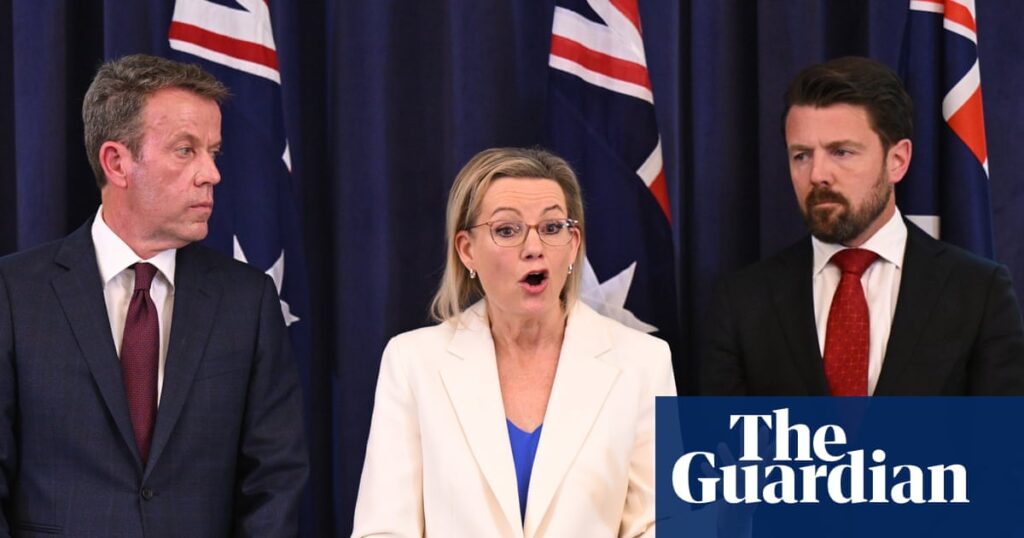
At least three former Liberal MPs have criticized the opposition’s decision to abandon the net zero by 2050 target, describing it as an “existential crisis” and “another nail in the coffin” that could cement the party’s electoral irrelevance for years to come. This sentiment was expressed in interviews with Guardian Australia, where former politicians and previous Liberal party candidates voiced concerns that hopes of reclaiming inner-city and suburban seats at the next election have been severely undermined by the move.
“This is a recipe for those seats becoming a lot more difficult to ever have a chance of reclaiming,” commented one former moderate MP. The announcement comes after months of internal discussions and disputes within the Liberal party, which culminated on Thursday with the decision to discard a legislated net zero emissions target and commitments to renewable energy projects, while paradoxically maintaining adherence to the Paris agreement.
Policy Shift and Its Implications
The shadow ministry has agreed that a future Coalition government would also repeal Labor’s legislated 43% emissions reduction target by 2030, as well as its 82% renewables target. Although a comprehensive energy and emissions reduction policy has yet to be disclosed, the opposition stated its strategy would be “technology agnostic,” incorporating a mix of coal, gas, hydro, batteries, renewables, and potentially nuclear energy.
Shadow Housing Minister Andrew Bragg defended the decision, acknowledging that the Paris agreement necessitates setting ambitious emissions reduction targets. “Emissions reduction is important to us as is getting lower prices and more abundant energy,” Bragg told Sky News. “So, I guess we’re trying to achieve those things simultaneously, rather than just choose one narrow objective which the government have pursued.”
Electoral Consequences
The decision to abandon net zero comes in the wake of the party’s most significant electoral defeat in 80 years, leaving Goldstein’s Tim Wilson as its sole inner-city representative nationwide. This follows the 2022 election, where six independents were elected over long-standing Liberal MPs in traditionally secure seats, driven by platforms focused on climate action, integrity, and gender equality.
Another former MP, who lost their seat to Labor in May, described the situation as having “existential crisis vibes,” suggesting that the Coalition agreement has diluted the Liberal party’s core identity. “I think you can already see what the corflutes are going to say at the next election,” they remarked. “I think what should happen is that the Coalition should [only] exist to form government, but you’ve got to have your separate identities, separate policies.”
Internal Party Dynamics
A well-known Liberal candidate, who has decided not to run again, described the decision as “just another nail in the coffin of the party.” They noted, “Yesterday guaranteed losing the votes of everybody under the age of 50 in one fell swoop. If they think the party’s got a future by behaving like that, they’re sorely mistaken. It might appease the 80-plus-year-olds that are still lingering around in a lot of the branches, but it’s a party without soul. It’s a party without a future.”
Former moderate Liberal MP Keith Wolahan, who lost his seat to Labor this year, commented that the climate change debate has been “mostly driven by emotion and virtue signalling.” Wolahan warned, “Unless the Liberal party in the Coalition wins more metro seats, it will always be a voice in opposition only, and I don’t think that’s in the country’s interest.”
Future Prospects and Party Vision
Despite the criticism, former Liberal MP Lucy Wicks, whose attempt to return to federal politics was unsuccessful in the May election, suggested that the policy announcement indicates the party is “beginning to stand up for a purpose,” even if it does not translate into electoral success. “I don’t know what that could mean for us at the next election, but the most important thing we can do as a party is demonstrate to our community that we have a vision for Australia’s future and to bring people with us on that journey,” she said. “It’s not just about power, [or] about winning for winning’s sake. Politics has also got to be about purpose.”
Meanwhile, a poll commissioned by the Liberal-aligned think tank Blueprint Institute and conducted by YouGov in August surveyed 5,007 voters on their attitudes towards the Coalition. The poll revealed that
52% of former Coalition voters said they “would only consider a party ready to govern if they have credible policies to address climate change and its impacts.”
As the Liberal party navigates its future strategy, the internal and external pressures to align with contemporary climate policies continue to shape its political landscape. The upcoming elections will serve as a critical test of whether the party’s current trajectory can resonate with a broader electorate.






